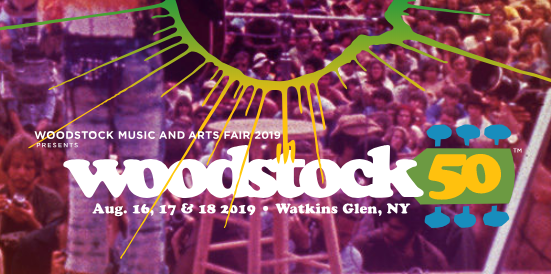Woodstock has gone down in history as the most iconic music festival of all time. Held in 1969, the festival was hailed as three days of peace, love, and music. Rock legend Jimi Hendrix played the National Anthem to open up his set, and the rest is history. It put music festivals in the public’s eye and things have only grown since then. Today, there are hundreds of festivals, although even the biggest ones, like Coachella, still seem to pale in comparison to the original Woodstock.
But thanks to a major investor pulling out of Woodstock, the concert has been canceled. The Dentsu Aegis Network, who was financing the concert, has decided to back out, effectively canceling the festival that so many had been looking forward to.
2019 was supposed to be the 50th-anniversary reunion of Woodstock, and big names like Miley Cyrus, the Killers, the Dead and Company, and Chance the Rapper were amongst the many artists who were scheduled to perform. It was hyped as the biggest event of the summer, although a lot of experts didn’t think that there was much promise here. After all, it is the same venue that was rained out for a Phish concert during the same weekend last year. Two days, both sold out at a 90,000 capacity, ended up having to be canceled because of unsafe conditions. There was potential that the same could happen this year, too.
There are a lot of questions about why this happened, and the future of music festivals has even been called into question. According to Dentsu Aegis Network, the company that was financing Woodstock 50, their main reason for pulling out was that they did not think that they could do justice to the legacy that Woodstock has created.
That’s a good concern. Woodstock has become the thing of legends, and it is the watermark for what all other festivals strive to be. There’s no way that a reunion festival could ever be as good as the original. For those that remember the 30th-anniversary concert in 1999, this is something that goes without saying. The lineup consisted of many hard rock and metal groups and the festival ended up turning into a riot scene, complete with out of control fires in some of the concert areas. It was a catastrophe. When producers tried to modernize the festival, it ended up going down in flames–literally.
The hole that Woodstock 2019 leaves behind this summer is not unfillable, though. There are dozens of other festivals going on across the U.S. during this timeframe, many of which will be hosting similar types of music to what Woodstock offered.
The future of music festivals in the U.S. is not in jeopardy. If anything, the cancellation of Woodstock speaks loudly about the quality of festivals that are currently going on. Coachella, the Governor’s Ball, and many others have raised the bar of what people expect from festivals when they attend them. Woodstock was a trailblazer, and if the newest incarnation of the festival did not blow all of these newer festivals out of the water, it would be considered a failure. There were some awfully big shoes to fill, and financiers were afraid that they wouldn’t come close to filling them.
Really, we don’t need another Woodstock. The festival scene is alive and well, and if we think of them as individual festivals and not something trying to carry on an old tradition, they will be a lot of fun as standalone shows. Setting our expectations for something other than what these music festivals are will only put pressure on them to recreate something that can’t be done again.
